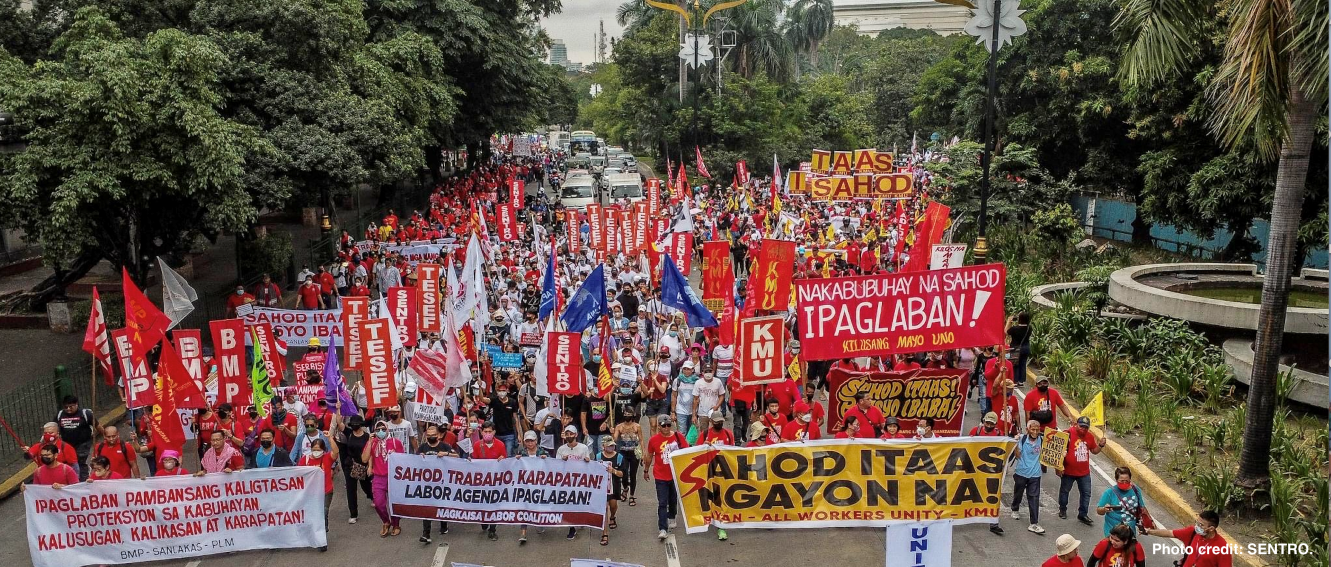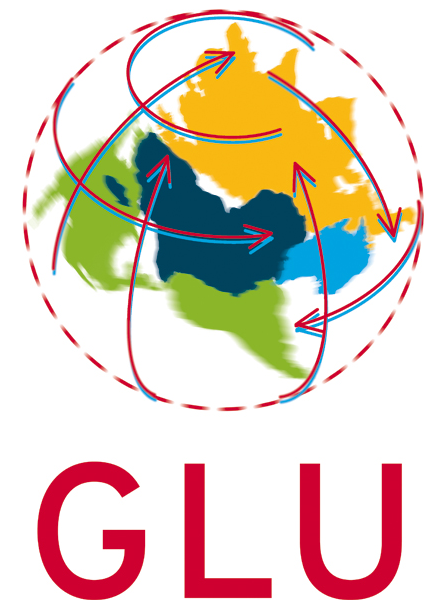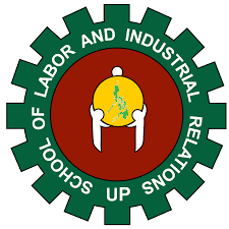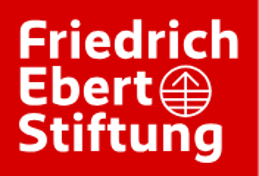
Labour in the Era of Polycrisis: Visions, Strategies and Actions
The 17th Global Labour University International Conference
7-9 December 2026
School of Labor and Industrial Relations
University of the Philippines Diliman
Quezon City, Philippines
Globally and nationally an unprecedented polycrisis threatens to overwhelm societies’ capacities to achieve sustainable and fair solutions. The rapid deterioration of the environment, increasing geopolitical tensions, the rise of popular authoritarianism, a potential global debt crisis, and a shift from corporate globalization towards economic nationalism require responses beyond the usual business of avoiding an immediate crisis by postponing it. Societies need to make fundamental choices.
The 17 th GLU conference in 2026 aims to bring together scholars, labour leaders and activists, policymakers and practitioners from across the world to explore and discuss the potential and possibilities of the labour movement to shape these choices.
Event Facts
Organized by the Global Labour University (GLU) and the University of the Philippines School of Labor and Industrial Relations (UP SOLAIR)
Conference Tracks
After the collapse of the Soviet Union the bipolar cold-war world ended. The capitalist economy became truly global underwritten by the undisputable power of the US. However, optimistic dreams of world peace and strengthened multilateralism didn’t materialize. Instead, countries pursue different strategies to move from unipolar US dominance to a multipolar world. The BRICS is the attempt to create a non-western bloc. The Chinese Belt and Road Initiative builds a China centered trade, finance and transport system. Russia wants to revert its decline through military force. Meanwhile, Europe tries to stop its relative decline by being the world largest trading bloc and a political soft power. The policy space of smaller countries is further eroded with the decline of multilateralism and rules-based arrangements.
As the massive trade deficit and the rising foreign and public debt are reaching unsustainable levels, the US under Trump tries to maintain and strengthen its top position in the global power hierarchy by shifting military costs to allies and to changing the global system of trade and tariffs.
The rearrangement of global forces and power relations is accompanied by increasing nationalism, arms races, and the risks of conflict including war while common global challenges like climate change, migration, health and poverty are neglected. With the re-emerge of the arms race also de-growth ideas need to answer how such policies can avoid higher military vulnerability.
Against this backdrop, this track invites papers that address the following questions:
- How is the global labour movement positioning itself in this changing geopolitical global landscape?
- What are the ideas, strategies and examples that prioritize international collaboration and solidarity over geopolitical confrontation?
The new authoritarian leaders do not come to power through military coups but through the ballot box. Disappointed from liberal democracy many citizens are voting for authoritarian strong men who promise decisive and disruptive measures. The widespread dissatisfaction grows out of frustration about inter alia stagnating or declining real wages, unaffordable housing, rising inequality, high levels of migration, rapid cultural changes, elite arrogance, devaluation of traditional ways of life, and relative loss of status and influence as the position of women, non-white ethnic groups and other minority groups improve.
By blaming minority groups, foreigners or woke-elites for societal problems, authoritarian leaders offer simple answers that mobilize resentment instead of offering real solutions. Their vision of the future often looks like the idealized paste of stable patriarchal world of cultural conformity and traditionalism.
The track invites papers that offer new perspectives and strategies at the international, regional and national level to address the following questions:
- How can labour become instead the voice of the dissatisfied and mobilize for progressive change?
- Are there successful strategies and examples of radical pragmatism that combine improvements of daily life with visionary dreams for sustainable societies of the free and equal?
The global economic system is subject to various crises that have made the international economic system fragile. First, it should be noted that neoliberal globalization, which gained momentum in the 1980s, has not fulfilled expectations of catch-up economic development in most countries of the Global South. Absolute poverty has declined, but in most countries of the Global South, the gap in real per capita income compared with countries in the Global North has widened. Many countries in the Global South have sold off prime assets in their industries and public utilities to foreign direct investors. This has resulted in high profit outflows. In global value chains or value systems, simple tasks are usually taken on, with most of the income going to the leading companies abroad. The trend towards oligopolies and oligopsonies has increased. There is also a tendency to outsource ecological problems from developed countries to the Global South. In many respects, there is an exploitative relationship between less developed and developed countries.
The deregulation of the financial system as part of the neoliberal model has led to dangerously high debt ratios – in terms of foreign debt in countries of the Global South, but in many countries of all country groups also in respect to government and the private sector. Military Keynesianism will have the tendency to increase debt quotas substantially. Overall, the global financial system is unstable, not only because of high debt and overvaluation of stock and real estate markets, but also because crypto currencies are gaining importance as a new financial market segments. In addition, the US dollar is potentially faltering as a stable international reserve currency, and there is a trend towards a multi-currency standard stimulated by geopolitical conflicts.
Track 3 invites papers that draw on a trade union/labour perspective in addressing the following questions:
- How can the globalization model be modified to allow sustainable catching-up of less developed countries in the Global South?
- How can global income distribution including the increasing concentration of rents and power in the hands of multinational companies be modified?
- How can the national and global financial system be made more stable and become an instrument to foster just transition?
The increasing intensity of the climate crisis threatens the life and livelihoods of millions of working people and their families. At the heart of what Adam Tooze called a climate emergency is an outrageous triple inequality: those who have contributed the least to environmental degradation are the most affected by this crisis and have the fewest resources for mitigation and adaptation.
Despite numerous global climate agreements and high-level meetings and commitments the climate goals appear increasingly illusory. Instead of energy transition, we are witnessing an energy expansion—an increase in both fossil fuels and renewables, fueled also by new geopolitical dynamics of national rivalry and increased militarization, which is responsible for 5.5% of global greenhouse gas emissions.
Confronting the climate crisis may require radical thinking beyond the green growth paradigm and other technical solutions that ignore the intensive extractivism involved in producing the infrastructure for renewables.
An economy that cares for people and the planet raises questions whose answers will be different for countries with different levels of development. It requires going beyond the state vs. private debate and developing new visions for inclusive and democratic socio-ecological transformations. Track 4 invites papers that stimulate debate and engage with the following questions:
- What sectors of the economy should grow? And which production should be stopped?
- How can we achieve an environmentally friendly, pro-poor growth economy where the income of those in need can rise while downscaling overconsumption for the sake of consumption?
- What political and macro-economic debates are needed for such changes?
- What transformative visions are emerging from the current resistance to the climate crisis and what is the role of workers and their organizations? How do questions of environmental justice and social justice intertwine in such struggles?
- Are there prospects for the emergence of long-term alliances that can push for these socio-ecological transformations?
Submission of Abstracts
The following are the guidelines for the submission of abstracts:
- Abstracts should be in English.
- Abstracts should have a maximum of 400 words, containing the following elements: introduction, research question(s), methodology, and key findings.
- Abstracts must be submitted via a Google Form on the submission link in this page.
- The author(s) must indicate their preferred conference track.
- The abstract should include the author’s name and institutional affiliation.
- Deadline for abstract submission: 30 January 2026.
Abstracts will be selected based on a double-blind peer-review process. Authors can submit more than one abstract but can present only one paper at the conference.
Guidelines for final papers will be announced later.
Deadlines
- Abstract submission: 30 January 2026
- Communication of acceptance: 31 March 2026
- Full paper submission: 1 October 2026
- Payment of registration fee*: 31 August 2026
*Payment method will be communicated later.
FEES AND EXPENSES
The conference registration fee is US$ 150.00 per participant. The registration fee covers the following: welcome cocktails in the evening of 7 December, light snacks and lunch on 8 and 9 December, and conference materials.
Waiver of the registration fee is possible to a limited number of participants subject to a request with explanation: “I would like to request a waiver of the registration fee because…” The request for waiver should be included in submission of the abstract. The Organizing Committee will assess these requests based on their merit. Participants who will be granted a waiver of the registration fee will be informed accordingly not later than 15 April 2026.
Travel costs must be met from participants’ own resources. The conference organizers will provide a list of hotels within and near the University of the Philippines campus. Participants will arrange for their own accommodation.
Accommodation
Participants are kindly reminded to arrange their own accommodation at a hotel of their choice. We strongly encourage making reservations as early as possible, as lodging options within the University of the Philippines campus tend to be fully booked well in advance. Here are some of the recommended options near the university (click on the provided links for more information):
University Hotel
F. Ma. Guerrero St. cor Aglipay St. UP Diliman, Quezon City
Landline: +63 2 8926 1953; +63 2 8924 6743
Email: roomreservations@universityhotel.com.ph
Website: www.universityhotel.com.ph
FB/Tiktok/Instagram: @universityhotel.com.ph
Daily Rates:
Regular room (twin) – PhP 3,100.00
Standard plus – PhP 3,400.00
Deluxe room – PhP 3800.00
Deluxe plus – PhP 5,000.00
UP International Center
F. Ma. Guerrero Street, UP Diliman
Quezon City, Metro Manila
Mobile: +63 998 846 0253; +63 951 284 7926
Facebook page: UP International Center
Email: upinternationalcenter@gmail.com
Daily Rates:
Deluxe (13 Rooms available) – PhP 3,360.00
Standard (2 Rooms available) – PhP 2,880.00
UP Balay Internasyonal
Guerrero cor Dagohoy St.
University of the Philippines Diliman, Quezon City
Landline: +63 8981 8500 loc 4408
Email: upbalayinternasyonal.upd@up.edu.ph
Daily Rates:
Small studio unit (1 double size bed, 7 units available) – PhP 940.00
Big studio unit (2 single bed, 6 units available) PhP 1,210.00
UP NISMED Hostel
Quirino Avenue cor. Velasquez St.
U.P. Campus, Diliman, Quezon City
Email: nismedhostel.upd@up.edu.ph
Website: https://nismed.upd.edu.ph/
Facebook page: nismedhostelupd
Contact number: +63 2 8927 4276 ext. 102
Daily Rates:
Room A (Single or Double, 4 rooms available) – PhP 1,395.00
Room B (Single, 20 rooms available) – PhP 1,145.00
Room B (Double, 20 rooms available) – PhP 1,785.00
F. Benetiz Hall Alumni Center (FBAC)
U.P. Alumni Center, Magsaysay Ave, Diliman, Quezon City, Metro Manila
Contact persons:
– Ms. Norma +63 954 253 4980
– Dr. Lei +63 917 532 0722
Single room w/ own T&B – 1 room available: PhP 1,400.00
Double w/ own T&B – 1 room available: PhP 1,800.00
Triple w/ own T&B- 2 rooms available: PhP 2,500.00
Good for 2 (common T&B) – 4 rooms available: PhP 1,600.00
Good for 3 (common T&B) – 1 room available: PhP 2,200.00
Microtel
Commonwealth Avenue UP Ayala Land Technohub, Quezon City
Contact person: Gian +63 917 654 7820
Email: uptechnohub.sales3@microtel.ph
Wesbite: https://www.microtel-uptechnohub.com/rooms
(Hotel is outside but near the UP Diliman campus)
Standard (2 queen beds) with breakfast – PhP 4,000.00
Suite (1 queen bed) with breakfast – PhP 6,500.00
COMMITTEES AND SECRETARIAT
- Melisa R. Serrano, School of Labor and Industrial Relations, University of the Philippines
- Frank Hoffer, Global Labour University
- Edlira Xhafa, GLU Online Academy
- Hansjörg Herr, Berlin School of Economics and Law
- Friedrich-Ebert-Stiftung (Global and Philippine Office)
- Christine Bischoff, University of the Witwatersrand, South Africa
- Anne Lisa Carstensen, University of Kassel, Germany
- Fabian Georgi, University of Kassel, Germany
- Hugo Dias, Institute of Economics, University of Campinas, Brazil
- Hansjörg Herr, Berlin School of Economics and Law, Germany
- Frank Hoffer, Global Labour University, Germany
- Elaine Hui, Center for Global Workers, Rights, Pennsylvania State University, USA
- Pravin Jha, Centre for Economic Studies and Planning, Jawaharlal Nehru University, India
- Nicolas Pons-Vignon, University of Applied Sciences and Arts of Southern Switzerland
- Francis Ryan, School of Management and Labor Relations, Rutgers University, USA
- Melisa R. Serrano, School of Labor and Industrial Relations, University of the Philippines
- Markus Wissen, Berlin School of Economics and Law, Germany
- Edlira Xhafa, GLU Online Academy, Germany
School of Labor and Industrial Relations, University of the Philippines
- Mary Leian C. Marasigan (Head)
- Vera Eileen V. Pupos
- Brian Anthony Gumiran
FURTHER INFORMATION
Further details are available at the Conference website:
https://global-labour-university.org/events/glu-conference-2026-ph/
(Check back regularly on this webpage for event updates)
For any queries, please contact the Conference Secretariat through:
Mary Leian Marasigan at glu.conference.solair.upd@up.edu.ph.



